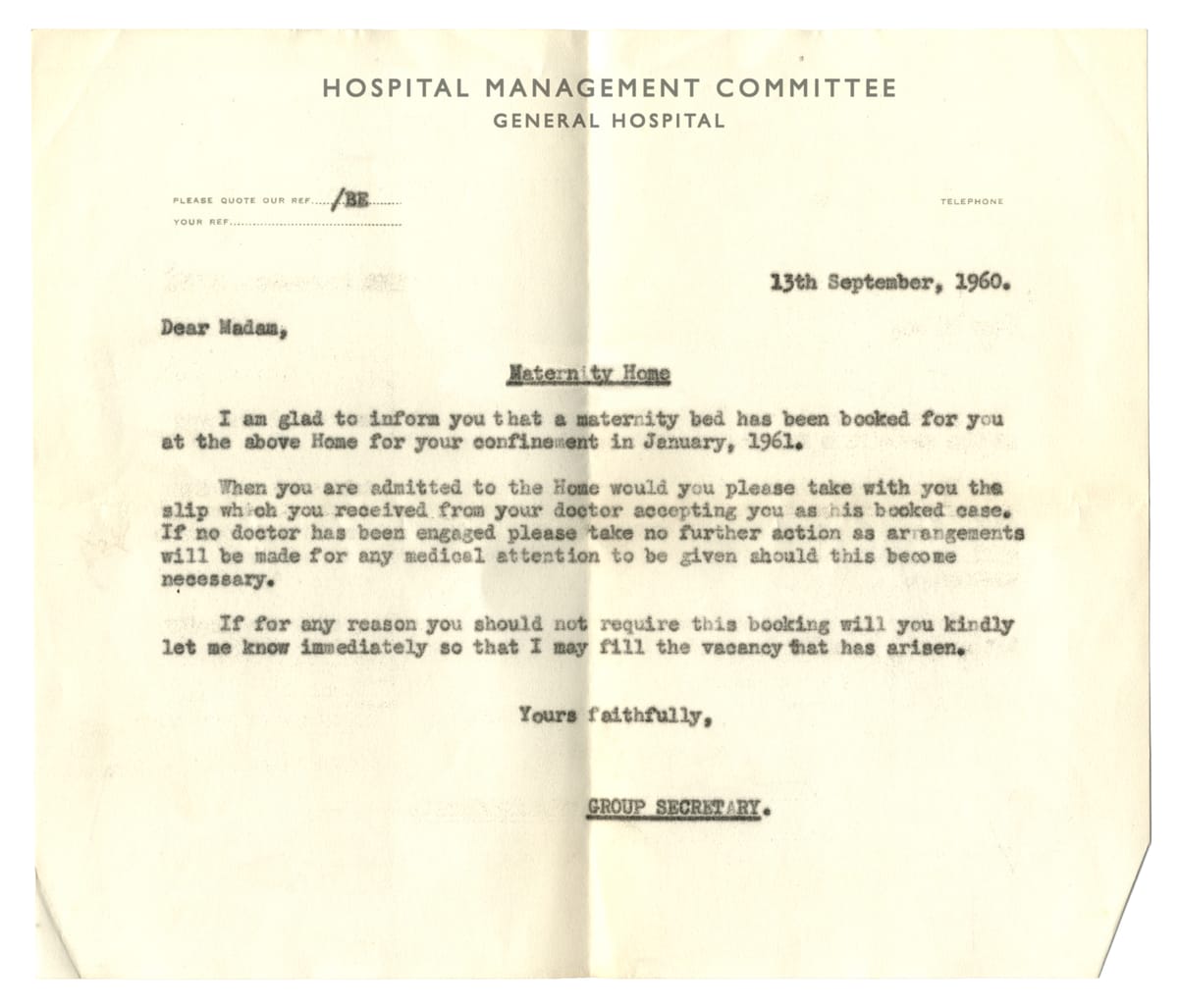The Bevan Briefing Issue #1 - Schrodinger's policy and other animals

This is the first issue of the newsletter which after an initial hiatus to have a baby and get stable, will be coming out fortnightly.
I'm typing this whilst simultaneously waiting for a) my baby and b) the 10 year plan. Both hold a lot of potential energy but only one has been sent to be pdfed (going against general accessibility advice - ahem) having been locked down last week. The other one is kicking me in the intercostals.
The steady leaks from HSJ and other media outlets have left me a bit perplexed at what the grand unifying theory for it is but I shall have to trust that all will be revealed in the coming days.
Policy Spotlight
Two main areas have caught my eye this week, cyber security and the shift in policy on AI scribes.
Cyber - with the not-at-all-unexpected news that a patient has died due to a cyber attack we are left with the fall out of where the culpability for that sits. The patient had a long wait for blood results which contributed in their death - with several time-sensitive conditions needing to have test results back to confirm the diagnosis and treatment (like sepsis) then this isn't surprising.
Trusts should be able to rely on their systems but there should be a decent level of disaster recovery planning (akin to the EPRR stuff you have drilled into you in ops) in case this stuff goes down. Which it will do increasingly.
There are plans afoot to regulate via the Cyber Security and Resilience Bill which is bringing more people into the scope (including managed service providers - given TCS has been named as the common organisation going across Co-op, M&S and others who have recently been hacked this isn't a surprise...) but nothing yet on whether the standards will apply prospectively or retrospectively.
If it is to be backdated, I imagine there will be a fair amount of cost passed down to the NHS where suppliers can get away with it. No good deed goes unpunished and all that....
Also of note is this in The Lancet on the under reporting of cyber attacks on Primary Care in the UK making the point that the impact of these attacks are focused on the loss of capacity in secondary and tertiary systems, with little focus on Primary Care. I'd also argue that Community and Mental Health are similarly untouched.
Ambient AI scribes - these lads arrived on the scene with a rebrand and a bang recently. There's been talk of them for about 10 years and there's always a bit of a flurry of activity when some voice recognition consumer tech launches which might make it a reality (Siri, when Microsoft bought Dragon, Chat-GPT etc)
The tech issues have always been the same - understanding medical terminology, a variety of accents, acoustics in consulting rooms, how to deal with languages other than English and speed of operating kit needed to make the whole thing work. These have mostly been overcome but the biggie which still remains is - how does this fit in the clinical workflow and who is checking it?
20 years ago when I qualified (ahem) - I used to dictate tapes which went in an internal envelope to the typing pool which then came back for checking (along with the tape) before sending to the patient and their GP. I was responsible for making sure my thick West Midlands accent was understood and having the excruciating job of having to listen to myself back to double check. Now the accountability seems to be uncertain as a bunch of the checking tasks appear to be automated...
The letter sent to Trusts telling them to hold their horses on implementing these new(ish) technologies makes a few good points on hallucinations and other known risks of LLMs but falls short on a number of things which would be useful for practical implementation - statements like
- an ambient scribing product that is deemed to be a medical device needs to be registered with the Medicines and Healthcare products Regulatory Agency (MHRA) and regulated proportional to its risk classification. A UK Conformity Assessed (UKCA) certificate is needed for clinical use of medical devices in the NHS. A valid CE mark is equally acceptable until 30th June 2028
seem helpful until you realise that the definition on what is a medial device has changed recently. And there is no guidance on where to find that (there's reference to 2002 guidance which I think is outdated now). Or where to find a list of things approved by the MHRA.
Guidance like this has the potential to be useful but it's an audio description of a map rather than AN ACTUAL MAP.

This week I have been mostly....
Reading Platformland By Richard Pope
Attempting not to overhead while nesting by interspersing cleaning with calippos
Listening to French Pop playlists to pretend like I'm in the Riviera rather than Northamptonshire.
Right - thats it for now - get in touch via Hello@thebevanbriefing.com.